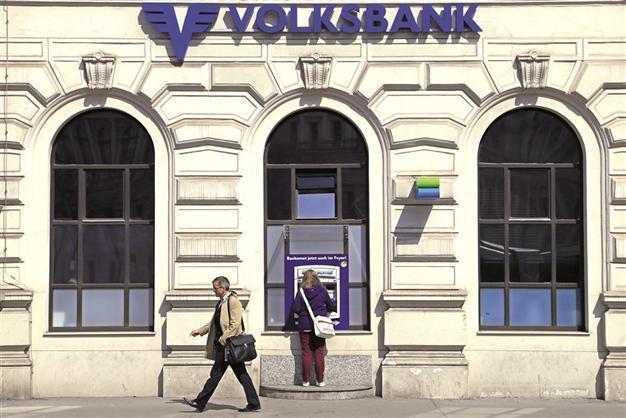France, top EU tax havens vow banking transparency
VIENNA/LONDON - Reuters

Consecutively revealed tax evasion and corruption cases in Europe have urged the governments to take measures. AFP photo
French banks will publish every year a list of all foreign subsidiaries while ministers must disclose personal assets from April 15, President Francois Hollande said in a drive to increase transparency amid Luxembourg’s and Austria’s pledges to take actions against bank secrecy.
Seeking to restore public trust after a budget minister resigned amid allegations of tax fraud, Hollande said he would step up the fight against tax havens and corruption, including by appointing a specialised financial prosecution office.
The president said there was “a need for a relentless battle against the excesses of money, greed and secret finance.” “Tax havens must be eradicated in Europe and the world because this is a condition of saving jobs,” Hollande told a post-cabinet press conference.
Europe-wide rallyA draft law to curb banks’ risky trading activities also demands that banks give more operational details on a country-by-country basis, including staff and revenues.
Ex-budget minister Jerome Cahuzac stunned France when he acknowledged last week that he held a secret bank account abroad.
Hollande’s remarks came after Luxembourg’s Prime Minister’s announcement today on that Luxembourg will exchange information about foreign bank account holders from the European Union with other EU countries from Jan 1, 2015.
He also said that sales tax in the country would increase from 2015 but that it would remain the lowest rate of VAT in Europe.
Austria Chancellor Werner Faymann also signalled an easing of Vienna’s hardline stance on coveted bank secrecy in his remarks on April 9.
Faymann, a Social Democrat, stressed that Austrians’ domestic bank accounts would remain shielded from the taxman’s prying eye, but foreigners’ wealth in local banks could face unprecedented scrutiny if the talks with Brussels go well. The moves mark a U-turn for the two countries that for years refused to share savers’ personal data with EU members.
